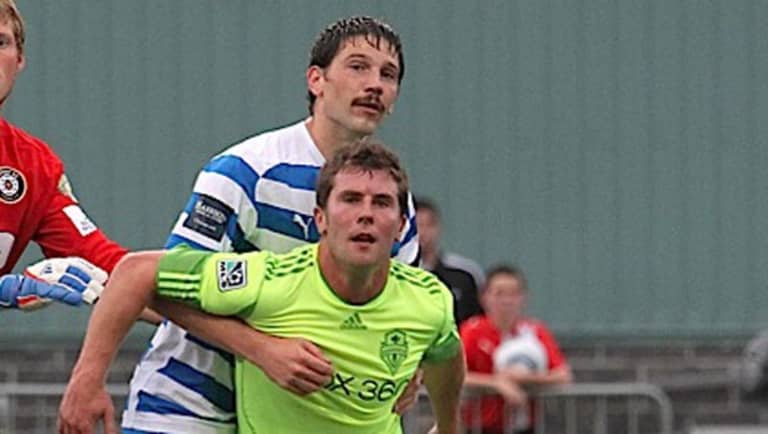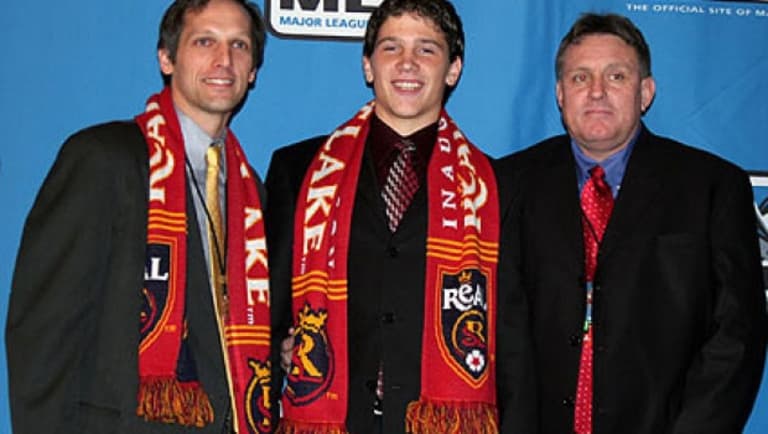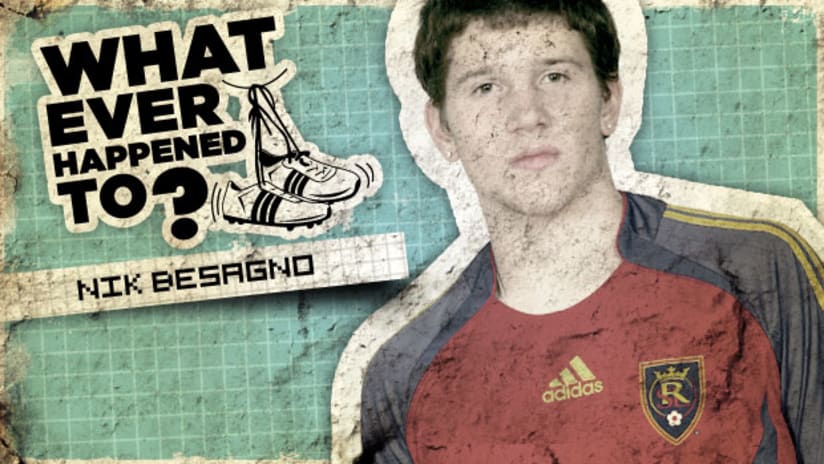MLSsoccer.com kicks off its third annual "What Ever Happened To..." series this week with a look back at the stars, personalities and cult heroes who made Major League Soccer what it is today. On the eve of the SuperDraft, we begin with former No. 1 pick Nik Besagno.
Where He Was Then
Just 16 years old when Real Salt Lake selected him with the No. 1 overall pick of the 2005 SuperDraft, Nik Besagno became the second-youngest draftee in MLS history. John Ellinger, head coach of the then-expansion team, had successfully coached Besagno on the US Under-17 national team and saw a potential standout defensive midfielder.
Although he was far from a consensus No. 1, there were reasons to think it could work. The Seattle-area native had good size for a player his age and solid on-ball skills. Besagno had graduated from the Bradenton Academy and was coming off a pair of appearances in the 2005 FIFA U-17 World Championship.
But not unlike Freddy Adu, the only player younger in SuperDraft history, Besagno’s career didn’t pan out as expected. In four seasons with RSL, he logged just 439 minutes and never appeared in more than four games in a season. He spent the end of 2008 on loan to his hometown Sounders, but failed to impress enough to make the move with them from the USL to MLS. He eventually ended up in the PDL, where he played for three teams in the Puget Sound area before moving into coaching.

Where He Is Now
Still just 24 years old – not much older than many players who will be picked in the 2013 MLS SuperDraft – Besagno seems to be at peace with the likelihood that his professional playing career is over. Unless someone comes calling with an offer that’s too good to refuse – an admittedly unlikely development – he’s content to pursue a degree from Seattle University while double-majoring in computer science and math.
Besagno hasn’t played for a fully professional club since his contract with RSL ran out after 2008. He spent last year playing for the PDL’s Crossfire, but even then was more focused on coaching a pair of youth teams.
“At this point, my priorities have changed,” Besagno says. “I’d still love to play. I still watch it and love it. I want to get my degree first and if I can still play, I’ll cross that bridge when I get to it. Right now, I need to take care of my education and then once that happens, we’ll see what I want to do.”
Aside from being the first player taken in the 2005 SuperDraft, the pinnacle of Besagno’s career may well prove to be his time with the fourth-division Kitsap Pumas. He helped lead them to a PDL championship in 2011 and even got one more chance at glory when the Pumas nearly upset the Sounders in the third round of that year’s US Open Cup (at right above, behind ex-Sounder Mike Fucito) – Besagno scored a goal and nearly set up a couple others in the 2-1 defeat.
If it never gets any better than that, Besagno doesn’t seem bothered.
“I never got into soccer because I wanted to be famous or the richest person ever,” Besagno says. “I played because I loved it. Growing up, it was never something that was my everything. It was just something I loved to do and, as it turned out, I was good at it. People kept picking me for more teams and I loved to do it.
“When it finally didn’t work out, it was at a point where I wasn’t playing anymore and was riding the bench. You can only enjoy it so much when you’re only practicing everyday and not playing. When it all ended, it wasn’t like my dream was crushed and my life was over, it was more I could get back to Seattle, start playing again and loving it. It wasn’t the worst thing in the world.”
In talking to Besagno, he gives no indications that he’s at all bitter about living with the “bust” label attached to his name for the bulk of his adult life. He refuses to blame his coaches and says he never felt any undue pressure because of being picked No. 1.

“I was just so excited to have the chance to play pro soccer, it wouldn't have mattered what round I went in,” he says.
He wouldn’t change anything if given the chance and suggests that the best thing a young player can do is understand that the typical playing career is fleeting.
“I would just say enjoy every second of it, have no regrets, and listen to the veterans on your team,” he says of what kind of advice he would offer. “Also don't turn your back on your education just because you've made it to the pros. You won't be able to play soccer forever. Whether it's four years or 20 years, at some point, it will come to an end and it pays to be ready for that day.”
What They Said
“He was one of the bigger kids. He developed pretty quick, had good feet. The problem he ran into in 2005 was that it’s really hard to develop young players. There’s not a single expansion team that has really developed a young player, in my opinion.”
– Brian Dunseth, former teammate at RSL













